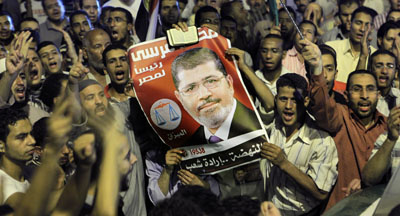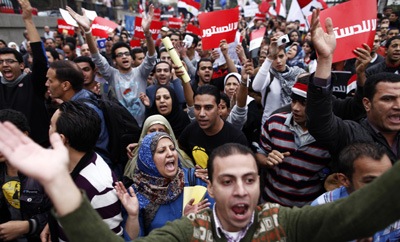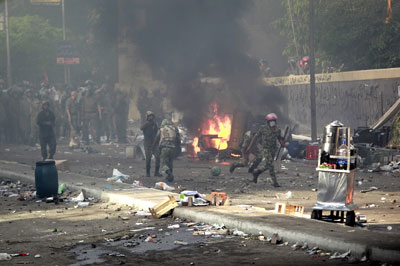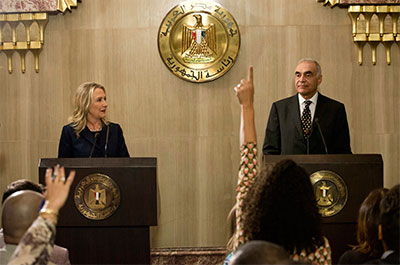In Egypt, Morsi bans pre-trial detention of journalists
New York, August 23, 2012–Egyptian leader Mohamed Morsi banned pre-trial detention of journalists charged with press-related offenses today in a decree issued just hours after a Cairo criminal court jailed an editor pending trial on charges of insulting the president, according to news reports.

Egyptian government attempts to suppress the media
New York, August 16, 2012–President Mohamed Morsi’s government and allies are pushing back against critical news coverage, suppressing critical journalists and state-run newspapers, putting a journalist on trial, and attacking three journalists on the street, according to news reports.

Another journalist reports sex assault in Tahrir Square
The story sounds hideously like another–one of a chaotic, predatory attack on a woman journalist in Cairo’s Tahrir Square. Clothes torn from her body, hundreds of men surging to grab her breasts and claw at her. A woman wondering, “Maybe this is how I go, how I die.” It has been almost a year and…
Journalist fined for defamation in Egypt
Cairo, June 18, 2012–The Committee to Protect Journalists condemns the legal action taken against an Egyptian journalist who was fined for defamation, and calls on the appeals court to reverse the ruling. In an unrelated incident, authorities briefly detained on Saturday an Egyptian journalist covering the run-off to the presidential election.
Egyptian police shutter Al-Alam’s Cairo office
New York, May 16, 2012–The Committee to Protect Journalists condemns Sunday’s raid on the Cairo offices of Al-Alam, an Iranian Arabic-language satellite broadcaster, which effectively shut down the station’s news gathering in Egypt. CPJ calls on authorities to immediately return the station’s confiscated equipment and allow staff members to resume their work.

Egyptian journalists report being brutalized in custody
New York, May 7, 2012–Egypt’s Supreme Council of the Armed Forces must immediately investigate reports that two journalists were brutalized in military custody and bring the perpetrators to full account, the Committee to Protect Journalists said today.

At least 18 journalists assaulted or arrested in Egypt
New York, May 4, 2012–At least 18 journalists have been assaulted, injured, or arrested in the past three days while covering clashes between protesters and thugs and uniformed military personnel in front of the defense ministry in the neighborhood of Abbasiya in Cairo, according to news reports.

Safer mobile use is key issue for journalists
As the Internet and mobile communications become more integrated into reporters’ work, the digital threats to journalists’ work and safety have increased as well. While many press reports have documented Internet surveillance and censorship–and the efforts to combat them–mobile communications are the new frontline for journalist security.

Why journalists need new ways to stay safe
After the Salvadoran online newsmagazine El Faro exposed a secret government deal with criminal gangs last month, its staff faced repercussions that illustrate the new and complicated risks facing journalists worldwide. El Faro’s report, which said the government provided more lenient treatment of imprisoned gangsters in exchange for the groups’ agreement to slow down their…
